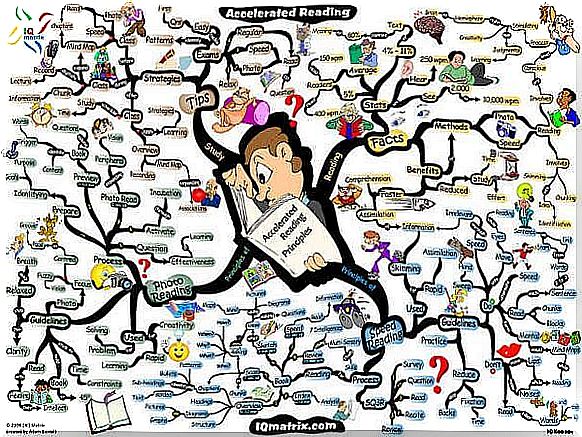10 Strategies To Improve Memory And Study

All of us in life have wanted to have a better memory, for example to succeed better in the study or in the professional field or simply to remember everything we have to do during the day.
For students, memory is essential in order to optimize study time and obtain maximum results. Furthermore, a trained memory will be very useful in working life and especially in these times when it is necessary to know how to continually renew and reinvent oneself.
Improving memory means improving the process of retrieving and storing information, so here are ten strategies to improve memory and optimize the study.
The strategies presented here are intended to improve effectiveness during the study process and are the result of research, books and articles on cognitive psychology.
# 1: Focus attention on what you are doing
Attention is one of the main components of memory. In order for information to pass from short-term to long-term memory, it is necessary to focus attention on this information. When you have to study or try to memorize something, it is important to choose a distraction-free environment that allows you to concentrate.
Avoid distractions and deactivate the “multitasking” mode.
# 2: Schedule regular study sessions and don’t reduce yourself to the last
It is not about learning discipline, but about helping your mind process information properly. Students who study regularly have been shown to remember much more of the study material than those who complete last-minute study marathons related to the same subject.
Organize your time and avoid cutting yourself at the last minute.
# 3: Outline and organize information
Researchers have shown that information is organized in memory into related groups. Consequently, by schematizing and organizing the study material, grouping concepts or making summaries with the help of notes, it will be easier for you to process the information and improve the study.
Simplify, schematize, analyze, make conceptual maps. You have many tools and technologies available to make studying easier and more fun.
# 4: Use memory techniques to remember information
Mnemonic techniques are strategies used to remember information and are usually personal, that is, they vary from person to person. They work as an “access key” that allows you to associate a thing that agrees with what you have to remember. Some techniques consist of forming a word using the initials of the first words of a list to remember all the points or memorize a series of funny pictures or cartoons, or use a song, etc.
Develop sequences of words or funny words to remember: study in a positive way.
# 5: Progressively work out what you are studying
To remember the information, you need to encode what you are studying into long-term memory. In this case, a very effective technique consists in progressively deepening a concept starting with the definition of a key term, then studying this term and finally continuing with a more in-depth definition. Repeating this process several times helps the memorization process.
Simplify and add new information little by little, don’t try to memorize everything in one fell swoop.
# 6: Relate new information to what you already know
When studying new material, first think about how to relate it to what you already know. By establishing relationships between new ideas and existing memories, you will be able to remember new information much better.
Thinking about what you already know will help you give more meaning and sense to the new information.
# 7: Visualize concepts to remember better
Visualization is one of the most used techniques and one that guarantees better results. In this case, it is important to focus attention on images (photos, diagrams, graphics), use colors and symbols, make concept maps, personal drawings, etc. Anything that can evoke the memory is valid.
Beautifying your notes will help you visualize the information better and have more cheerful and positive study material.
# 8: Tell someone what you have learned
Researchers believe that reading the information aloud significantly improves the memorization process. Educators and psychologists have found that when students teach new concepts to their peers they also improve the same understanding and recall they have of these same concepts. To take advantage of this technique, you can study with a partner or ask a family member or friend to listen to you.
If it is not possible for you to study with a family member or friend, imagine talking to someone or using photographs, posters, dolls, in short, anything that helps and makes you feel at ease.
# 9. Pay particular attention to the most difficult things and restructure the information
The researchers found that the order of information can play an important role in memorization. An interesting technique is to restructure information, starting with what is easiest to remember and spending a little more time on what is most difficult.
Break up the information and turn it into something easier to assimilate. Identify what is most difficult for you and give it a little more time.
# 10: Change your study routine from time to time
Introducing new things into your study routine helps break the monotony and increases the effectiveness of your efforts, as well as facilitating information retrieval in the long run. In this case, it is sufficient to change the study environment or make any other news that seems interesting to you. It is not necessary to make radical changes, but only to find alternatives from time to time.
Bringing something new makes studying more interesting and allows you to relax your mind by making a little effort of creativity.
Image courtesy of Jean Louis Zimmermman.









